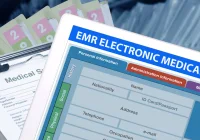The evolution of electronic health records (EHRs) has revolutionised data management in healthcare. However, their potential is often limited by the significant amount of unstructured data they contain, such as clinicians’ notes and patient narratives. Natural Language Processing (NLP) is changing this dynamic by converting unstructured data into actionable insights, driving improvements in patient care, hospital operations and medical research.
Challenges of Unstructured Data in EHRs
Unstructured data within EHRs holds a wealth of information that often remains untapped due to the limitations of conventional systems. While structured data like test results and diagnostic codes are easily managed, narrative texts are more complex to analyse. Clinicians frequently prefer documenting in free text, as it allows for detailed context, patient history and nuanced information, essential for informed decision-making.
NLP addresses these challenges by analysing and extracting meaningful insights from this free text. By leveraging advanced algorithms and models, NLP can interpret and organise unstructured data, transforming complex notes into structured, actionable information. This capability helps bridge the gap between traditional data management practices and the need for comprehensive patient records, enhancing clinical decision-making and efficiency.
While useful for administrative purposes, International Classification of Diseases (ICD) codes do not capture the full complexity of patient conditions. These codes often simplify medical conditions into basic categories, missing the depth required for precise clinical analysis. As a result, critical details, such as disease progression or contextual changes in a patient’s condition, may be overlooked. NLP overcomes this by interpreting doctors’ notes and generating a detailed picture of patient health that goes beyond mere coding.
Applications and Benefits of NLP in Healthcare
NLP technologies can identify patterns, track symptom evolution and even flag important but subtle details that ICD codes miss. This ensures a richer dataset that supports clinical decisions, making patient care more accurate and tailored. NLP’s ability to automate the organisation of complex information helps healthcare professionals maintain their preferred documentation methods while achieving structured data output.
NLP is revolutionising healthcare in three primary areas: system management, medical research and direct patient care. For health system management, NLP provides deep insights into operational processes and outcomes, helping administrators allocate resources more effectively and optimise hospital workflows. In medical research, NLP can aggregate and analyse vast patient data to discover treatment efficacy and optimise protocols. This capability supports initiatives such as identifying the best treatment approaches for specific conditions and highlighting areas for improved clinical guidelines.
In terms of patient care, NLP plays a critical role by enabling faster, more accurate diagnoses and treatment plans. By analysing patient histories and flagging missed details such as overlooked symptoms or necessary tests, NLP helps clinicians offer personalised and proactive care. This reduces diagnostic errors and enhances treatment outcomes, ensuring patients receive timely and appropriate interventions.
Overcoming Implementation Challenges
Implementing NLP in healthcare systems presents challenges, primarily due to diverse hospital infrastructures and concerns surrounding data security. Each hospital’s unique setup requires flexible integration strategies, from direct incorporation to batch processing solutions. Customising implementation plans ensures hospitals can adopt NLP solutions that complement their existing systems without significant disruption.
Given the sensitive nature of medical records, data privacy and security are paramount. Effective NLP systems must anonymise patient data before processing to comply with legal and cultural standards. Ensuring data quality through validation and clinical plausibility checks further reinforces the system's reliability, fostering trust among healthcare professionals and patients.
A significant challenge is the hesitancy to adopt cloud-based solutions despite their potential for enhanced computational power and security. Balancing local and cloud-based operations allows hospitals to leverage NLP’s capabilities while maintaining data control. Investing in these systems pays off through reduced diagnostic delays, better resource allocation, and improved patient outcomes.
NLP is a transformative force in healthcare, unlocking the potential of unstructured data within EHRs to improve patient care, hospital efficiency and medical research. By bridging the gap between narrative records and actionable insights, NLP ensures that valuable clinical information is utilised effectively. Addressing integration challenges and maintaining rigorous data privacy standards will be critical for the widespread adoption of NLP in healthcare. As more hospitals embrace this technology, the shift towards more precise, proactive and personalised care becomes increasingly achievable.
Source: Healthcare Transformers
Image Credit: iStock










